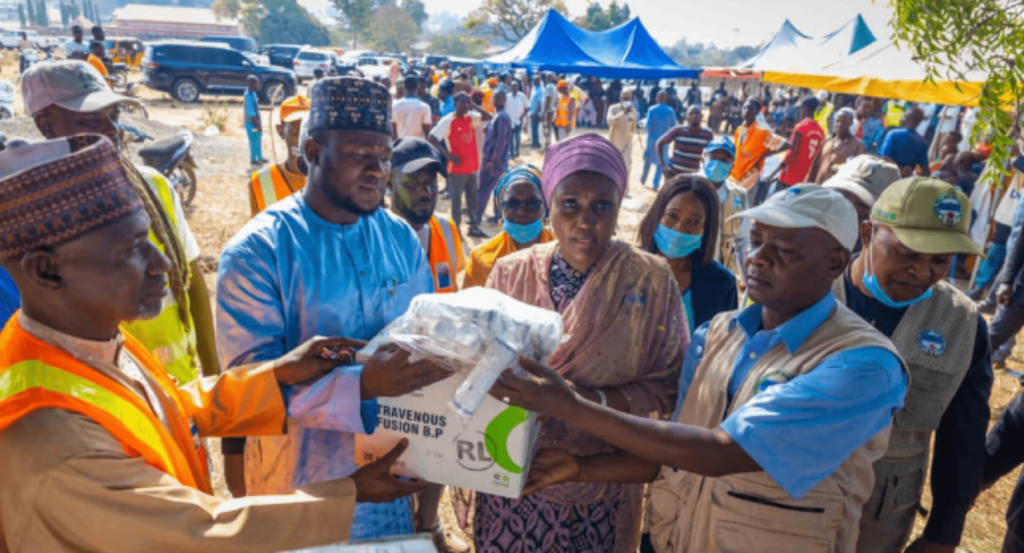The National Emergency Management Agency (NEMA) has distributed relief materials to victims of the tragic tanker explosion in Diko, Niger State, which claimed 98 lives, injured 69 people, and destroyed 20 shops. The distribution aims to ease the suffering of those affected by the devastating incident, which has left the community reeling from its aftermath.
The explosion occurred on a busy section of the Suleja-Minna highway, described as a “highway to hell” by locals due to its history of accidents. Witnesses reported that the tanker, transporting petroleum products, lost control and overturned, causing an inferno that engulfed vehicles, shops, and pedestrians. This catastrophic event has raised concerns over road safety and the enforcement of regulations for heavy-duty vehicles transporting hazardous materials.
In response to the disaster, NEMA mobilized resources to provide immediate relief. Items distributed included foodstuffs, mattresses, blankets, cooking utensils, and hygiene products. The Director-General of NEMA, Mustapha Ahmed, expressed his condolences to the families of the deceased and emphasized the agency’s commitment to supporting victims and preventing future occurrences.
The tanker explosion also prompted Niger State Governor, Abubakar Sani Bello, to call for stricter measures to address the recurrent tragedies on the Suleja-Minna highway. He lamented the loss of lives and property, urging authorities to ensure compliance with road safety protocols and improve the highway’s condition to prevent future disasters.
Residents of Diko and neighboring communities have expressed gratitude for the relief materials but continue to grapple with the emotional and financial toll of the tragedy. Many have called for long-term solutions, including stricter regulation of tanker movements, improved road infrastructure, and emergency response training for local authorities.
The Diko explosion is the latest in a series of incidents that have brought the issue of road safety in Nigeria to the forefront. Stakeholders, including the Federal Road Safety Corps (FRSC), have been urged to strengthen enforcement and awareness campaigns to prevent such avoidable loss of life. Meanwhile, victims are left to rebuild their lives in the wake of one of the country’s deadliest road accidents.






















